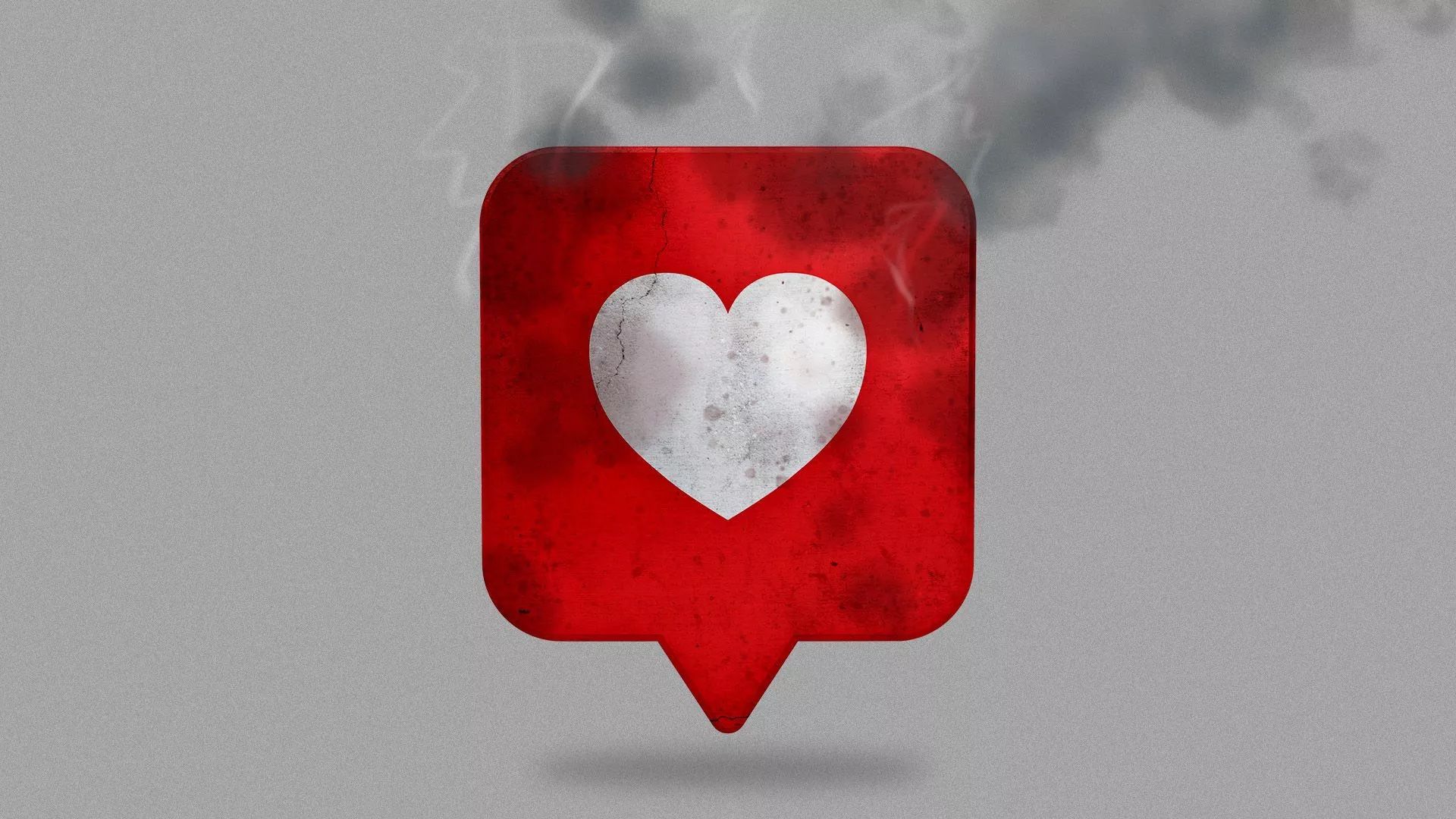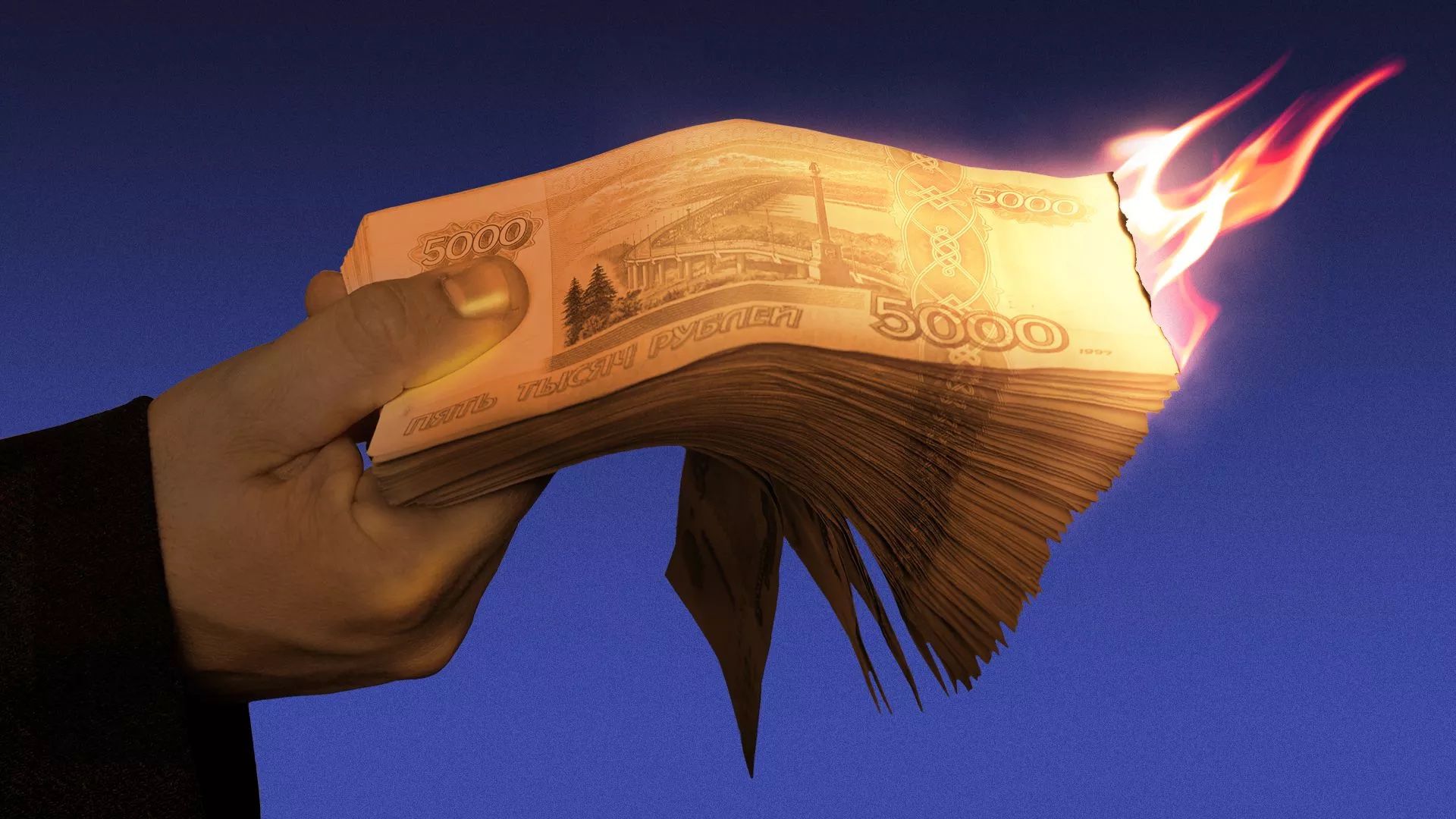| | | | | | | Presented By Google | | | | Axios AM | | By Mike Allen ·Mar 11, 2022 | | ⏰ Hello, Friday. Your phone will spring ahead on Sunday. Smart Brevity™ count: 1,183 words ... 4½ mins. Edited by Zachary Basu. 🇮🇷 Breaking: With world powers on the brink of reviving the Iran nuclear deal, talks in Vienna have been "paused" over last-minute sanctions demands from Russia. Go deeper. | | | | | | 1 big thing: Chemical weapons threat | | A Ukrainian serviceman photographs a damaged church yesterday, after shelling hit a residential district in Mariupol, Ukraine. Photo: Evgeniy Maloletka/AP The White House is sounding the alarm over a new Russian propaganda campaign that officials fear is a pretext for an appalling new phase of the war: - The use of biological or chemical weapons, Axios' Zachary Basu reports.
Why it matters: Vladimir Putin has a history of deploying illegal nerve agents against enemies, including opposition leader Alexei Navalny and former double agent Sergei Skripal. In Syria, Russia helped Bashar al-Assad cover up the use of chemical weapons against his own people. What's happening: Kremlin propagandists have been frenetically spreading baseless claims that the Pentagon is funding dangerous bioweapons labs in Ukraine. - Chinese diplomats and state-controlled media have joined in on the conspiracy theories, raising fears about a level of coordination between the two powers not seen during the conflict thus far.
 Data: Institute for the Study of War. Map: Jared Whalen/Axios Reality check: The U.S. and Ukraine have vigorously denied the presence of any U.S.-backed bioweapons program, saying the only labs the U.S. supports in Ukraine are standard research facilities that focus on "diagnostics, therapeutics, treatment, prevention and vaccines." - The Biden administration has issued statements calling the Russian claims "preposterous" and "total nonsense," and urging the world to "be on the lookout" for Russia to use chemical weapons itself or attempt a "false flag" operation in Ukraine.
- "Allegedly, we are preparing a chemical attack," Ukrainian President Volodymyr Zelensky said in a new video address. "This makes me really worried because we've been repeatedly convinced: if you want to know Russia's plans, look at what Russia accuses others of."
Between the lines: The U.S. has repeatedly sought to debunk Russia's narratives about Ukraine by declassifying intelligence about Putin's plans ahead of time, a novel approach that undermines his element of surprise. |     | | | | | | 2. 📺 No. 1 predictor of COVID views: Where you get news |  Data: Axios/Ipsos polling. Chart: Danielle Alberti/Axios The key factor determining how an American handled COVID — more than race, education or even party — is where they get their news. - That's a big takeaway from 63 waves of our Axios/Ipsos Coronavirus Index over the past two years, analyzed by Margaret Talev, Adriel Bettelheim and Danielle Alberti.
In March 2020 — when everything changed, two years ago today, with the WHO declaration of a global pandemic — roughly nine in 10 Americans, regardless of their preferred media outlet, trusted the CDC. - Within weeks, that trust was plunging among Americans who mostly watch Fox News or other conservative outlets, as well as those who cited no source.
- By the end of last month, just 16% of those who said they get most of their news from Fox or other conservative outlets still said they trust the CDC — compared to 77% of those who favor network news and major national newspapers, and 87% of those who primarily watch CNN or MSNBC.
💉 By the end of last month, 77% of respondents overall said they'd been at least partially vaccinated. For Republicans and for watchers of Fox and other conservative media, it was about 10 points lower. - The highest vaccination rates among respondents were Democrats (87%) and those whose primary news sources were network TV or major national newspapers (86%). The lowest vaccination rate (57%) was among those saying they had no primary source for news.
Keep reading. |     | | | | | | 3. Social media's new ethical minefield |  | | | Illustration: Sarah Grillo/Axios | | | | War intensifies the impulse to share powerful images, but leaves users with uncomfortable choices and pitfalls in the social media wilderness, Axios' Ina Fried writes in her weekly "Signal Boost" tech column. - Why it matters: Platform moderators face complex ethical and legal calls over photos of dead soldiers, images of teens taking up arms and videos of prisoners of war criticizing the conflict.
A video went viral of a Russian soldier denouncing the invasion after being captured in Ukraine. - It wasn't long before observers pointed out that such footage, if produced by a government, might well violate the Geneva Conventions.
- Detainees "must be treated with dignity, and not exposed to public curiosity — like circulating images on social media," the International Red Cross said as part of a Twitter thread explaining those rules.
Keep reading. |     | | | | | | A message from Google | | Google is keeping high-risk users safe online | | |  | | | | Google is advancing online security to protect high profile individuals and groups from targeted online attacks. The Advanced Protection Program helps keep elected officials, political campaigns, human rights activists and journalists safe. Learn more. | | | | | | 4. 📷 1,000 words | | Photo: Robert Hanashiro/USA Today Spotted yesterday on Manchester Boulevard in Inglewood, near LAX. |     | | | | | | 5. Banks reveal billions in potential Russia losses |  | | | Illustration: Shoshana Gordon/Axios | | | | With Russia's economy collapsing, its stock market cryogenically frozen and its bonds near default, global investors are set to endure major losses, Axios Markets co-author Matt Phillips reports. - Why it matters: For decades, Russian investments were a cornerstone of "emerging market" investing — the financial world's marketing rubric encouraging the free-flowing global investments that helped define the post-Cold War era.
Russia was a star of the "BRICS" — a rubric coined by Goldman Sachs analysts that stood for the fast-growing emerging market economies that were investor favorites over the last two decades. - BRICS = Brazil, Russia, India, China, South Africa.
👀 What we're watching: Russia is considering seizing and potentially nationalizing assets of companies that quit the country. |     | | | | | | 6. Jussie Smollett sentenced | | Jussie Smollett is led out of the courtroom after being sentenced yesterday. Photo: Brian Cassella/Chicago Tribune via Getty Images Actor Jussie Smollett was sentenced to 150 days in jail and 30 months of probation for making a false report to Chicago police that he was the victim of a hate crime in 2019. - The former "Empire" star, who is Black and gay, told police two men attacked him in a hate crime. He was convicted in December on five counts of lying to police, but has maintained he was telling the truth.
Standing up at the defense table as his lawyers and sheriff's deputies surrounded him, Smollett told the judge: "[I]f anything happens to me when I go in there, I did not do it to myself. And you must all know that." |     | | | | | | 7. ⚾ Opening Day = April 7 | | The MLB players' union voted yesterday to accept the league's deal. When owners ratified the agreement hours later, the second-longest work stoppage in MLB history officially ended, Axios' Jeff Tracy writes. - Opening Day is 27 days from now.
- Spring training games begin next Thursday, March 17.
To play the full 162 after originally canceling two series, MLB will tack three games onto the end of the season — and make up the other three as nine-inning doubleheaders. - Opening game on April 7: Red Sox at Yankee Stadium, 1:05 p.m. ET.
|     | | | | | | 8. CD sales grow for first time since 2004 |  Data: RIAA. Chart: Jacque Schrag/Axios Dust off those plastic binders that lived in your back seat. Fire up the boombox: Compact discs are back, writes Nate Rau of Axios Nashville. - CD sales enjoyed year-over-year growth for the first time since 2004, the Recording Industry Association of America says in its annual sales report.
- Combined with the decade-long vinyl sales explosion, overall physical music sales grew for the first time since 1996.
Physical music sales exploded to the tune of $1.65 billion in the U.S. last year, according to the RIAA data. - CD sales grew to $584.2 million nationally last year, up more than $100 million from 2020. By comparison, 2021 vinyl sales increased to $1 billion annually, up from $643.9 million.
Share this story. |     | | | | | | A message from Google | | Protecting websites and organizations from digital attacks | | |  | | | | Project Shield provides free unlimited protection for news and human rights organizations, government entities, and more from Distributed Denial of Service attacks. These digital attacks are used by bad actors and cyber criminals to censor information by taking websites offline. Learn more. | | | | 📬 Sign up here for your own personal copy of Axios AM, PM and Finish Line. |  | It's called Smart Brevity®. Over 200 orgs use it — in a tool called Axios HQ — to drive productivity with clearer workplace communications. | | | |













No comments:
Post a Comment